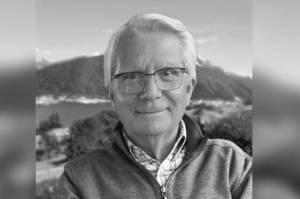Local elections matter
Published 9:32 pm Thursday, September 21, 2017
Amid all the turmoil surrounding national issues and candidates jockeying for statewide office, it’s sometimes difficult to take time to study and participate in our local elections. Yet, it is our locally-elected officials who make the tough decisions that will affect us for many years to come.
In Juneau, unlike in some years, all three Assembly seats up for election are being contested.
In the three-way District 1 race, incumbent Jesse Kiehl faces off against former businessman and bank manager, Chuck Collins, and charter boat operator, Loretto Jones.
The District 2 race has long-time Juneau real estate broker, Debbie White, as the incumbent against legislative aide, Rob Edwardson.
In the area-wide Assembly race, the incumbent, Alaska Department of Fish and Game manager Maria Gladziszewski, is being challenged by write-in candidate, Andy Hughes, a retired Department of Transportation regional planning manager.
What is the best way to evaluate these candidates?
The issues that have captured the most attention this past year can guide us when considering which candidates deserve our vote.
Public Safety: Public safety has emerged as one of the main challenges facing many of the municipalities in our state. Influenced heavily by the per capita assault rate in Anchorage, our state is now considered one of the most dangerous in America, according to FBI statistics on violent crime.
Juneau is experiencing a dramatic increase in property crimes. An epidemic of opioid abuse and relaxed sentencing guidelines have resulted in an explosion of petty crime and unsafe conditions throughout our community.
• While our state leaders struggle with fine-tuning past criminal justice reforms, what actions can our city leaders undertake now to reduce crime and improve public safety?
• How can our Assembly best address homeless issues while still protecting private property rights and our downtown core?
• Which local candidates are taking this issue most seriously?
Economic Development: With the City and Borough of Juneau Assembly facing increased pressure on the budget, economic development is more important than ever. A community’s health relies on the availability of a wide diversity of jobs and, therefore, economic development remains the key to a more livable and prosperous community and state.
Despite the Governor’s lack of action on Juneau Access, supporting the Lynn Canal Highway project remains the most important and visible way to demonstrate our commitment to economic development. Building the road would pump $500 million into our economy, put our people to work, lower our transportation costs and generate new ways to stimulate new businesses and jobs as well as help reverse our declining population trend.
• Which three candidates currently running for the Assembly endorse Juneau Access?
• Which of our current private sector industries (mining, fishing, tourism) have the potential for expansion?
• Which candidates are actively encouraging expansion and advocating for ways for that to happen — such as streamlining our existing mining ordinance?
• Which candidates have experience in the private sector that will prove useful in crafting new approaches?
Municipal Budget: Financial stability in municipal finances has continued to elude us. Unable to align revenue and expenses, the Assembly has chosen to balance the budget with infusions from our savings. This is not sustainable.
• Should we consider some efficiency measures by cutting some programs or facilities? Do we need two swimming pools, three libraries, and more city parks, for example?
• Which current sales tax exemptions should be reviewed for modification?
Education: Normally considered within the purview of our local school board, our local assembly also can influence beneficial change within our school district. Education has come to the forefront after school officials announced more than 60 percent of Alaska’s public school students failed to meet grade-level academic standards in English, language arts and math in this year’s statewide standardized tests. This follows similar poor results when students were last tested in 2015.
• How do candidates for Assembly and School Board address our poor test scores, mediocre graduation rates and reduce chronic absenteeism?
• What is the Assembly’s role in helping to effect change in our school system and, other than continuing to give schools more funding, what are each candidate’s ideas on that?
Juneau cannot realistically bridge our fiscal gap and continue to fund necessary community and social programs unless we are serious about economic development and keeping our community a safe and attractive Capital City.
Unless we educate ourselves on community issues and the candidates, little will change. In past years, some voters have been narrowly focused, their vote based on whatever special interest most appealed to them — be it a new high school, library, pool, or other community facility or program.
One can only hope that foundational issues — economic development, public safety and education — motivate voters this time around.
At 33 percent voter turnout, our last two local elections had higher turnout than previous years. But we can do better.
Please vote on Oct. 3.
• Win Gruening retired as the senior vice president in charge of business banking for Key Bank in 2012. He was born and raised in Juneau and graduated from the U.S. Air Force Academy in 1970. He is active in community affairs as a 30-plus year member of Juneau Downtown Rotary Club and has been involved in various local and statewide organizations.




